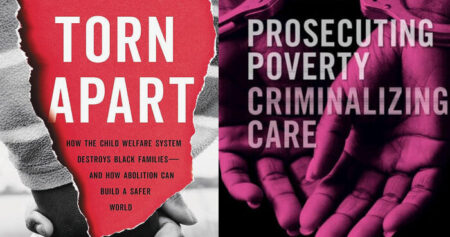
Caring for Children by Punishing Parents
According to the official organs of the family policing system, their goal is to ensure that children are safe and receive proper care. But a closer look at this system demonstrates just how little concern it has for the well-being of children. Instead, its primary purpose is to punish parents – a cruelty exacerbated by the fact that we live in a country that makes parenting nearly impossible.





